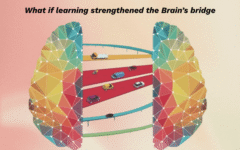Blame Game or Teamwork? How Parents and Schools Can Break the Cycle and Raise Future Leaders
February 13, 2025 2025-09-17 8:27Blame Game or Teamwork? How Parents and Schools Can Break the Cycle and Raise Future Leaders

Blame Game or Teamwork? How Parents and Schools Can Break the Cycle and Raise Future Leaders
In the journey of a child’s development, the roles of both the school and the home are undeniably intertwined. However, a common scenario often plays out where parents and teachers find themselves at odds, each blaming the other for the child’s behaviour and development. This blame game not only creates a divide but also hampers the child’s growth. At Navriti, we believe that meaningful learning happens when parents and teachers work together, co-creating an environment where children feel supported both at home and in school.
Let’s explore how this cycle can be broken and how both parties can work together to foster a supportive and enriching environment for the child.
The Dialogue
Parent: “I don’t understand why my child is struggling in school. We pay so much for this education, and yet, the school isn’t doing its job. The teachers should be more responsible for my child’s behaviour and academic performance.”
Teacher: “We do our best at school, but a child spends only 25% of their time here. The rest of the time, they are at home. Parents need to understand that they play a crucial role in shaping their child’s character and habits. We can only reinforce what is taught at home.”
This conversation highlights a disconnect that often exists between home and school. But what if, instead of placing responsibility on one side, we saw education as a shared journey?
The Home Environment: A Foundation for Growth
A child’s brain develops most rapidly in the first five years of life, with over 90% of brain development occurring by age three. During this critical period, interactions with caregivers, sensory stimulation, and language exposure play a crucial role in shaping brain architecture. Parents are the first teachers, and their actions and attitudes significantly influence a child’s cognitive, emotional, and social development.
The Role of Schools and Teachers
While parents lay the foundation, schools and teachers play a crucial role in reinforcing and expanding upon these early lessons. Teachers act in loco parentis, guiding children’s development and reinforcing positive values. Schools provide a structured environment where children can practice social skills, develop academic competencies, and explore new interests. However, the impact of school-based education is significantly enhanced when supported by a consistent and nurturing home environment.
Best Practices for Parents at Home
- Set Clear Rules and Boundaries: Establishing concise, clear, and age-appropriate rules helps children understand expectations and develop self-discipline. For example, a simple chart with daily routines and expectations can help young children visualize and follow through on tasks.
- Lead by Example: Children learn by imitation, and parents’ behaviour is a powerful model. Demonstrating respect, politeness, and emotional self-control can guide children to develop similar habits. For instance, if you want your child to be polite, make sure to say “please” and “thank you” regularly.
- Encourage Exploration and Learning: Provide a cognitively stimulating environment with diverse learning materials and activities. Encourage curiosity and exploration, which are essential for cognitive development. Reading to children daily and engaging them in conversations can significantly enhance their language skills and academic motivation.
- Establish Reward and Encouragement Mechanisms: Positive reinforcement through praise, small rewards, or special treatment can boost children’s confidence and motivation, reinforcing good behaviour. For example, a sticker chart for completing homework or chores can be a fun way to encourage responsibility.
Best Practices for Schools and Teachers
- Open Communication: Regular updates and discussions between teachers and parents ensure alignment in the child’s learning journey.
- Parental Involvement: Encouraging parents to participate in school activities—workshops, meetings, and events—strengthens the home-school connection.
- Consistent Reinforcement: When both parents and teachers reinforce the same values, children develop a strong sense of right and wrong.
- Supportive Environment: Schools must provide a nurturing space where children feel safe to explore, question, and grow.
Breaking the Blame Cycle
The blame game between parents and teachers is counterproductive. Instead of pointing fingers, both parties should recognize their roles and responsibilities in a child’s development. At Navriti, we believe in a partnership model where parents and educators work together, ensuring that children receive consistent guidance and support across both environments.
How We Build This Partnership at Navriti
- Mutual Respect: Parents and teachers value each other’s roles in shaping a child’s future.
- Collaborative Approach: Open dialogue helps set shared goals for a child’s development.
- Education and Awareness: Workshops and resources help parents understand how to support their child’s learning at home.
At Navriti, we see education as a collaborative effort between parents and teachers. By working together, we create a seamless learning experience where children feel secure, supported, and inspired—both in school and at home.

















